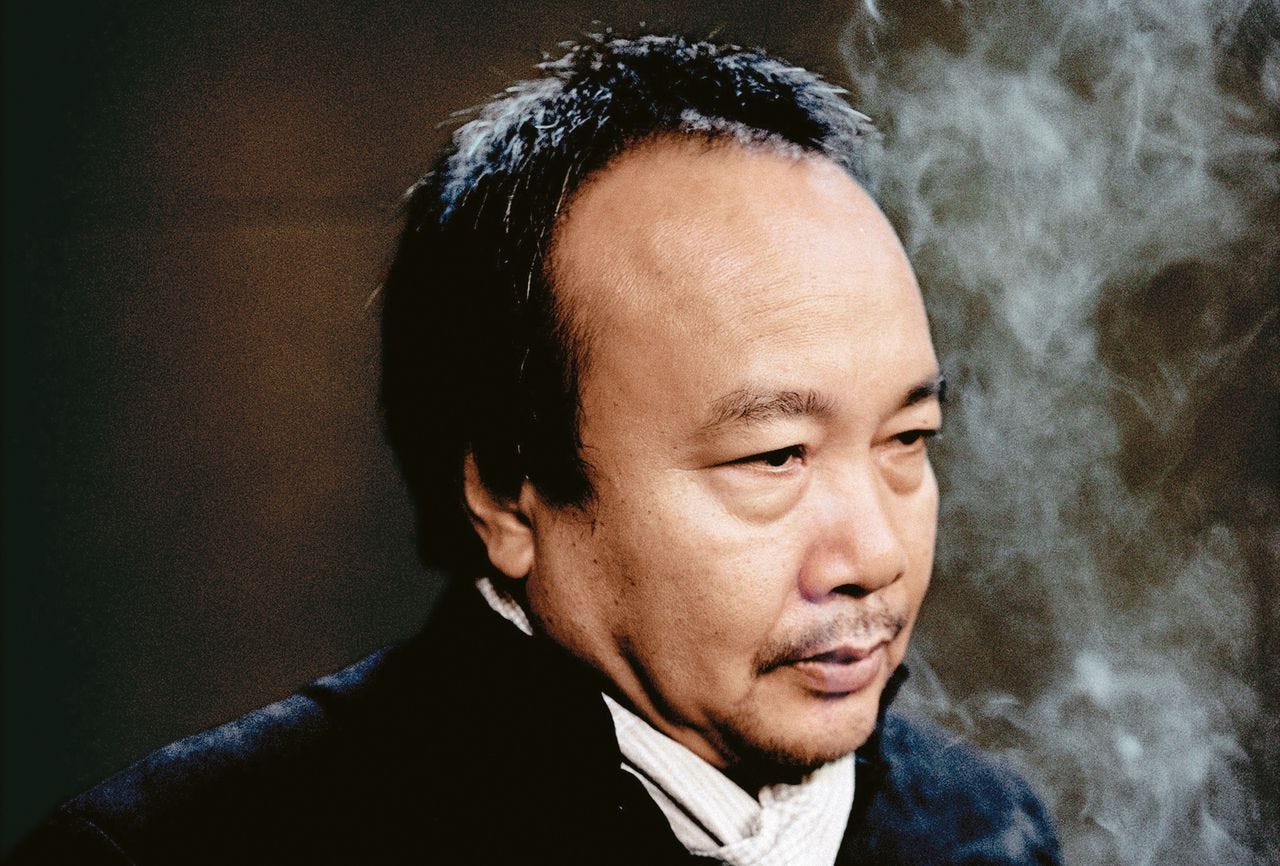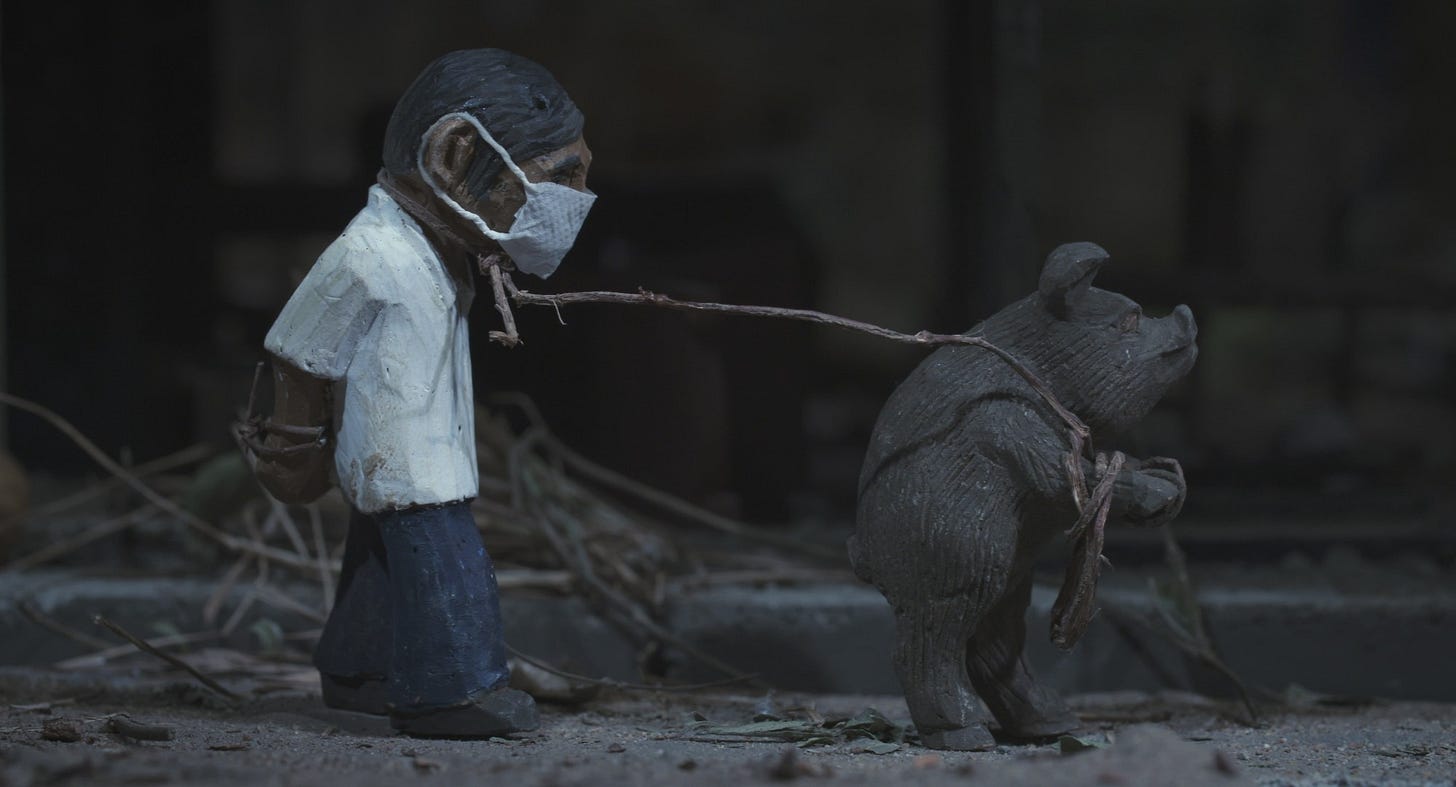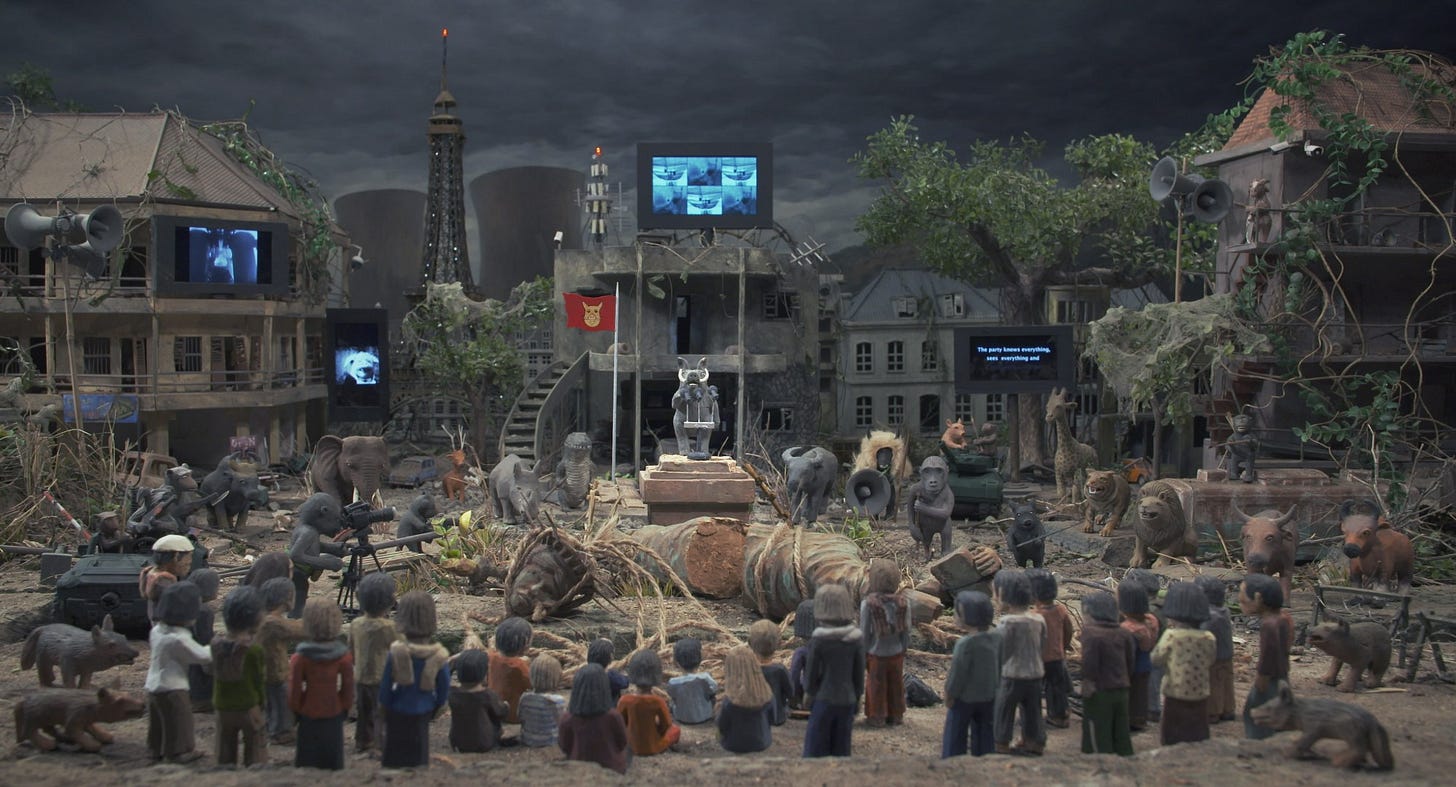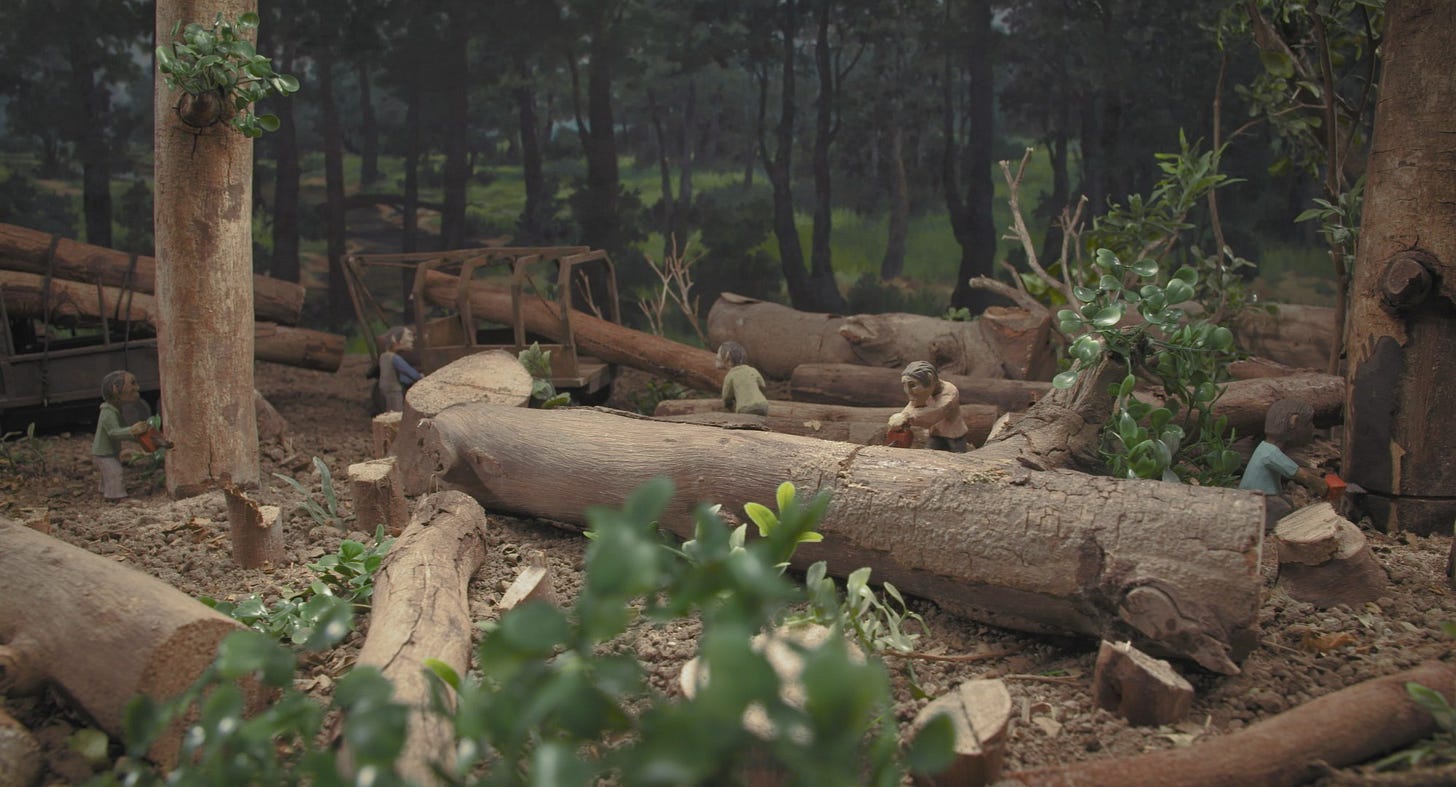Film Show 014: Rithy Panh
An interview with Cambodian director Rithy Panh about 'Everything Will Be OK', which premiered at the 72nd annual Berlinale
Welcome to Film Show, a newsletter that’s run in conjunction with Tone Glow. While the latter is dedicated to presenting interviews and reviews related to experimental music, Film Show is a space for interviews with filmmakers and other artists involved in the film and television world. Thanks for reading.
Rithy Panh
For more than thirty years, Cambodian director Rithy Panh has made documentary and essay films revolving around the genocide enacted by the Khmer Rouge regime. He was 11 when they took power, and he witnessed first-hand as those around him, including his parents and siblings, died while held at a labor camp. His newest film, Everything Will Be OK, had its world premiere at the 72nd annual Berlinale. Its title comes from a T-shirt worn by a teenager killed in recent Myanmar protests, and is expectedly ironic, hinting at the helplessness of the world. Across 98 minutes, Panh presents a dystopia through archival footage, stills from classic films, and clay figurines—a tool used in his award-winning 2013 film The Missing Picture. All these images, along with a voiceover and dense soundtrack, culminate in information overload: an unrelenting depiction of the war’s tragedy, terror, and endlessness. “Power has no virtue,” we hear at on point. “Its players are hidden and its goals are shapeless.”
Joshua Minsoo Kim talked with Rithy Panh on Sunday, February 13th via Zoom to discuss his childhood, sound as violence, and Everything Will Be OK.
Joshua Minsoo Kim: You’ve said in the past that cinema can’t capture truth.
Rithy Panh: I once said that it could, but now I’ve changed—I’m older now (laughter). I think that cinema can express some kind of truth, but it is not the truth, not a definitive one. Maybe I’ll change my mind tomorrow but I would say that cinema can’t change anything, that it can bring no answers. But cinema is here with us, it’s here with us in the way poetry is, and many other kinds of art. So I take cinema and try to work with that.
Why pursue cinema, then, when you don’t think it can capture truth?
At the beginning I didn’t want to make films. It was my history and experience with genocide that pushed me, but no one specifically pushed me to do it. It’s my duty, it’s my work to show the people who died during the time of the Khmer Rouge to give them a memory, an identity, a face, a name. And little by little I learned about cinema through making films—I started to love it. I’m very interested in how cinema can be poetic and how it can bring out something pure and specific. It’s like a dream. I learn a lot from film to try and understand who I am. I would like to make a comedy or action film (laughter).
How do you initially start working on a film? What does that look like?
When I start making a film I don’t know exactly what I want to do. I have an idea, and I try to put it down on paper, but most of the time I cannot—I surprise myself with each line I write down. The idea becomes something concrete when I start to film. Essentially, I try to live with the film, to live with the people, and to then have something beautiful to share at the end, whether it’s a sad story or a love story—I just want something beautiful.
How did you first decide to become a filmmaker?
When I was a teenager during the Khmer Rouge time, I’d see a lot of people suffering. There were no images of this genocide; they were killing people without any images, without a trace. I’d sometimes look up and see a plane very high in the sky, and it was my dream to have them parachute a camera to me so I could take pictures. Any teenager can dream about that when you live in this difficult situation, when you have to fight to survive. And I think this was the first time when I was thinking about how images can bring something—not the truth, not a solution, but something.
You were around 11 when the Khmer Rouge started their rule, do you have any fond memories of your childhood before that?
I still remember a few years of my life from when I was really, really young. I was happy and the country was still peaceful. I remember my family, the songs, the traditional dances and games, and the food. I remember the smell and the taste of the fruit, and it’s strongly rooted in my mind because with the Khmer Rouge, we’d have nothing to eat. Even just this thought of me eating fruit, a smile will come because it’s like a souvenir, a memory. Sometimes I can smell the caramelized pork and mangos.
Do you consider it productive to think about these old memories?
For me and for every human being, this part of childhood is the most beautiful, the most pure, the most poetic. This is a pure thing that you have in you; sometimes I try to get it back. It’s like when someone plays violin (starts miming someone playing violin with the utmost passion, all while making violin sounds) or Glenn Gould playing the piano (starts miming Glenn Gould’s dramatic piano playing), it’s like a little child playing with toys. It’s very focused, very obsessed with their art. When you look at children, there’s beauty in their way of narrating a story.
This makes a lot of sense, and it sheds light on your use of clay figurines as making them requires a lot of concentration and dedication. Why did you decide to revisit this medium? We had previously seen it in The Missing Picture (2013).
I wanted to make three films with these tools, but it depends on the story and what can fit. I like to use this element of my childhood, from back when we would play with clay figurines. I don’t think I hold the truth in my hands, at least not now, but I would like to make films with these beautiful childhood things because it’s a more sincere way of making cinema, making it more like a dream, more poetic.
It’s interesting you mention dreams because throughout Everything Will Be OK you include stills and footage from older films, and especially from those that feel dreamlike. There’s Bergman’s Persona (1966) and works from Georges Franju, Chris Marker, Méliès, even Eisenstein. How did you decide on what to use?
When I was preparing the set, I was thinking of Ingmar Bergman, so I thought about putting Persona there, that image of the woman touching the screen. I like Tarkovsky but I couldn’t find where to put him. But Tarkovsky is a monument in itself, you can’t take an extract like that from him—you can’t take something from Stalker and just put it there. But with Eisenstein or Vertov or Fritz Lang it’s much easier. Like with Metropolis, with the factory and slavery, it’s very modern. They have the same modernity in their view, the same power of creativity, of poetry.
You’ve constantly been mentioning poetry—were you reading a lot of poetry during the making of this film?
I like to read poems, dream, and then come back. I also only watch old films and am passionate about photography and painting. But when I know that something can influence me I don’t want to see it because I’ll copy and steal everything (laughter). Sometimes it’s upsetting to watch Tarkovsky because it’s like, phew, I need to stop making films (laughter). He did everything, there’s no need to make films anymore.
Something that struck me about Everything Will Be OK is how dense the audio is. There’s a lot of sound. What are your thoughts on sonic warfare and on sound as a weapon, as violence?
It’s like chaos, right? Dictators don’t speak, they shout. They shout and they shout for hours. We discussed how to mix and balance the sound with the sound engineer because we wanted to have some moments when it hurts your ears, but we also wanted it to be accurate. We wanted to capture the language of totalitarianism—totalitarianism has its own language, yes. The first weapon of the dictator is their words. And in our film these are the pigs, and we have Hitler’s speeches playing in reverse.
Do you have a desire to shock people with your films?
No, there’s no need. Reality shocked me already so I don’t need cinema to shock. When I make a film, it’s not out of a desire to shock, it’s to tell people they’re already shocked. When a film comes to you like a mirror, it feels like a shock, but you’ve actually been shocked all this time. We’re shocked everyday but are sleeping.
People wake up in the morning and, as soon as possible, tweet. They shout and are angry. It’s a world of angry men (laughter). We’re always stressed like that. Can we maybe not live too much in immediacy? Can we not tweet immediately and instead have time for reflection? These people think they’re free to speak, but they’re not. It’s this illusion of freedom. Facebook and Twitter control you very well. They know everything about you while you shout and shout, and then you think you’re free?
Do you have any hope for humanity?
I’m not sure. I will say, if you try to do something positive every day—and it can be small—at the end of your life, in the last moments before you die, you’ll see something beautiful. You will die with these beautiful images. If you only do bad things, you’ll see violence. Your soul is perturbed and messy and you’ll die with bad images. So let’s try to do beautiful things every day.
There’s one question I always like to ask to everyone I interview: Do you mind sharing one thing you love about yourself?
I love when I do nothing, when I’m lazy. I’m always doing something, I cannot stop. Sometimes when I try to stop and do nothing for half a day, I like myself in that moment, I feel very peaceful and calm, but it’s very rare. I spend more time stressing. Making a film is difficult; you’re searching for money and ideas, you’re working with your team, and then after the film’s finished you’re afraid that people won’t like it. Why do I punish myself like that?
More information about Rithy Panh’s Everything Will Be OK can be found at the Berlinale website.
Thank you for reading the fourteenth issue of Film Show. Take some time off; don’t punish yourself.
If you appreciate what we do, please consider donating via Ko-fi or becoming a Patreon patron. Film Show is dedicated to forever providing its content for free, but please know that all our writers are paid for the work they do. All donations will be used for paying writers, and if we get enough money, Film Show will be able to publish issues more frequently.






